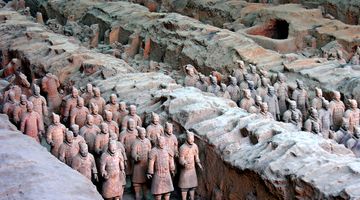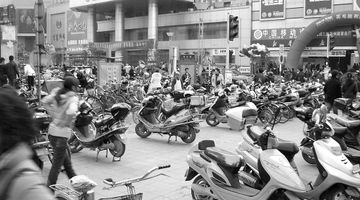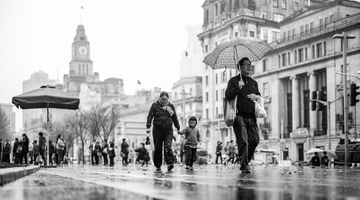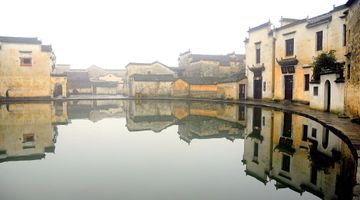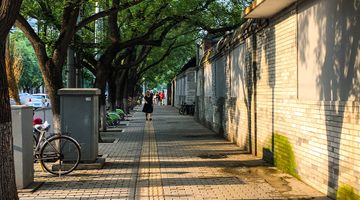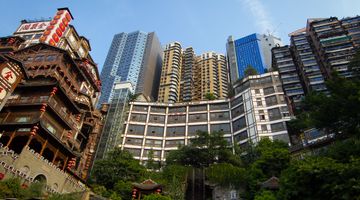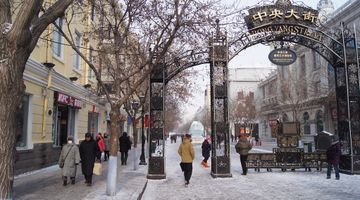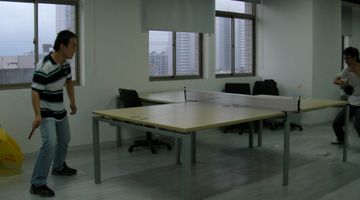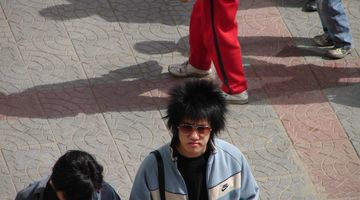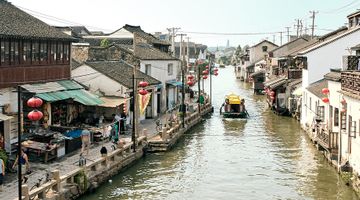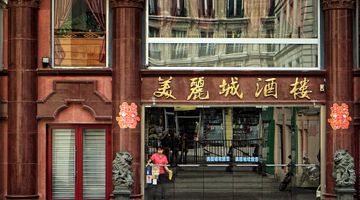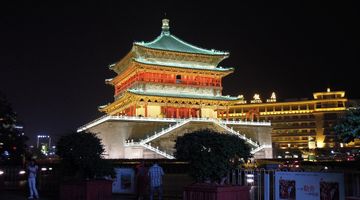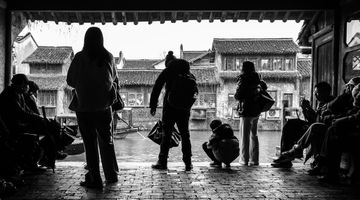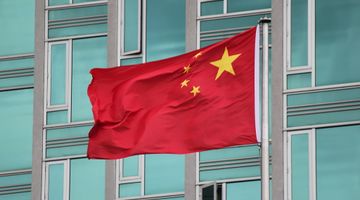Travel Insurance for China
Before travelling to China you should carefully consider what type of traveller insurance policy you require. This will depend largely on your planned activities – do plan them before deciding on which travel insurance to buy for China.
Your health insurance may not cover ‘dangerous pursuits’ and it can halt a policy claim if you did not declare these at the time of taking out the policy. You should ensure your policy covers medical care and repatriation back to your home country. It can be cheaper to take out a policy where you pay for hospital or medical bills and claim later, but this could use all your available money and ruin your plans.
Where to buy travel insurance for China
You can find all the travel insurance information you require before buying either online or through your travel agent. Before you buy insurance it is a good idea to first shop around to find the best deal that suits you and gives you full coverage. There are lots of travel insurance companies including Travel Guard and Lonely Planet; they are also well equipped to give you some travel insurance tips should you need them. Expedia gives you the option to do comparisons of online travel insurance companies.
Is travel insurance for China really necessary?
It is not essential but advisable; it can cover cancellations to trips already paid for, lost luggage and medical emergencies.
Some of these you may already be covered for through your credit cards. If you are taking part in any high risk activities you may need additional cover.
Some travel insurance company’s class hiking and cycling as dangerous activities. If you are travelling to a remote area you may need additional cover in case of a medical emergency.
How to choose the appropriate cover you need
By carefully planning your itinerary beforehand you will know what activities you plan to take part in, you can then go online to a site such as Expedia and list all that you will be doing, eliminating any options you do not need and then comparing the quotes that your search options give you. Another alternative is to visit a travel agency and have then do a search on your behalf.
The steps you should take in the event of an accident
If during your time in China you find yourself the victim of an accident there are certain steps you need to take to ensure you are covered by your insurance, first or as soon as you are able to you need to contact your insurance company, insurance agent or broker to get the claim into action.
If you have to attend hospital there is a good chance that very little English is spoken particularly among the reception staff where your insurance documents will need to be inspected. It is always a good idea when coming to China to have any official documentation translated, this will save a lot of unnecessary delay should it be needed.
What will be covered by your insurance, what will you have to pay for?
The hospital may refuse your documentation and insist on you paying particularly if you are in an area that is not often frequented by visitors from overseas.
Before your treatment can begin you will have to provide some proof of payment and provide a deposit unless they accept your insurance documents as a deposit. This will be much easier in a major city or in an international hospital or medical centre.
You may have to pay for any medication you receive as part of your treatment; this depends on the level of cover you purchased from your insurance provider.
The level of health care in China
The healthcare available in China is both public and private with vastly differing levels between the poorer rural areas and those of the modern cities. About 95% of the population has some form of medical insurance although this usually only covers the basic needs and is not sufficient should serious or chronic illness occur.
China is changing its healthcare system to enforce insurers to provide at least 70% cover of medical costs by 2020. In 2006, and the launching of health care reforms in rural areas to make it more affordable and in some areas to just provide basic medical assistance, the local government covers between 30 and 80% of the costs giving affordable cover to those most in need. The infrastructure of the healthcare system in major cities such as Beijing, Shanghai and Guangzhou was approaching that of the leading countries in the developed world, rural areas however remain far behind.
What a hospital in China may look like
Hospitals in China always appear to be very busy, if you are to be admitted you will have to go to the registration area for initial documentation, pay any fees due and then see a doctor before being assigned a bed.
The wards tend to be large in size but divided into small rooms with three or four beds in each. Relatives or friends have to provide meals for inpatients so it is usual to have one person per patient sleeping overnight on a fold out bed; these are packed away in the daytime.
Visiting hours are not really observed and visitors tend to come and go as they please. You could find yourself sharing a room with a group of very noisy relatives busily chatting all day and not seeming to care on the peace and well being of other patients.
In most hospitals there is very little English spoken, if at all. Take someone with you that speaks fluent Chinese, you will not have too much personal privacy and will more than likely have to share a consulting room with other patients and their relatives.
While many Chinese hospitals use western medicine and medical practices there are still some that specialize in Traditional Chinese Medicine, treatments include massage, acupuncture, herbal remedies or heat treatment. It can be very effective in the treatment of some illnesses and diseases. Chinese medicine can be very effective against colds and flu or other minor ailments. Medical halls situated along the street in China usually have at least one doctor in attendance, these buildings often look like a pharmacy and are often a better and quicker alternative than a visit to the hospital.
Are there government, private and international hospitals?
Public government run hospitals are available in all cities across China and the quality can vary from one hospital to another within the same city. Even in the smaller cities there are often VIP wards, the cost is higher with better equipment and skilled staff, but space is limited.
Dental care and cosmetic surgery are available in all but the poorest areas of China with many practices offering a better standard than that available in western countries.
Private clinics or hospitals in China were until 2000 not fully regulated and many were staffed by practitioners only trained in Chinese medicine. Since the health reforms were introduced physicians are now encouraged to open their own private clinics or hospitals once they have completed five years of medical practice in a public hospital. More government run hospitals are being sold to private investors and so the market for private hospitals will increase in China. In the city of Fuzhou in Fujian province, four of its government run public hospitals are now in the hands of private investors.
Beijing currently has more than a dozen international hospitals and clinics; there are more in the cities of Shanghai, Guangzhou, Chongqing, Changsha, Chengdu, Shenyang and Wuhan. In Shanghai there is an international hospital that specialises in the treatment of cancer, another with 688 beds for general care while the Peking Union Medical College Hospital in Beijing is one of China’s leading teaching hospitals and provides care and treatment for overseas patients.
How much does a visit to a doctor in China cost for a foreigner?
The treatment at an international hospital may be of a higher standard than that which you receive at a public hospital but it comes at a price, international hospitals can be up to ten times more expensive.
Simple eye treatment such as drops to reduce swelling or inflammation of the eyes can cost CNY200 at a public hospital; the same treatment at an international hospital is CNY3000.
If you have to be transferred by ambulance from one hospital to another the costs can be considerable. My wife had to be transferred from a local hospital to a teaching hospital in Nanchang due to childbirth complications. The 140 km journey cost CNY5000 by ambulance; other people have had to pay over CNY2000 for a journey by ambulance from one hospital to another within the same city.
There is a growing trend in some cities that have a long term expat community to use hospitals that have an international department, it is much cheaper than the international hospitals some have a similar level of care.
In addition to the cost factor, local hospitals offer more specialized care and more departments. Chinese doctors are very competent, remain calm and rational, their manner and professionalism outweighs that of many of their western colleagues.
Registration and an initial consultation with a doctor can vary from CNY200 to over CNY1000 at an international hospital. CAT scans are around CNY2000 at local hospitals and CNY5000 at international ones.
In conclusion
While travel insurance is to some essential, to others an unnecessary burden and cost, it is useful to have some cover. The least accident prone among us can lose their luggage, fall or get knocked over by an e-bike. Just eating at the wrong restaurant can lead to medical treatment and high unbudgeted medical bills. It is useful to have and may save a lot of financial worries should you need it and not be covered by travel insurance.



